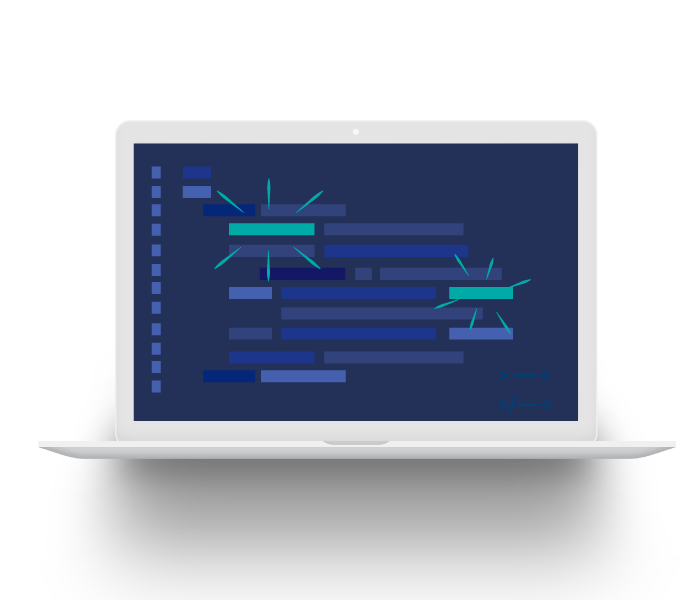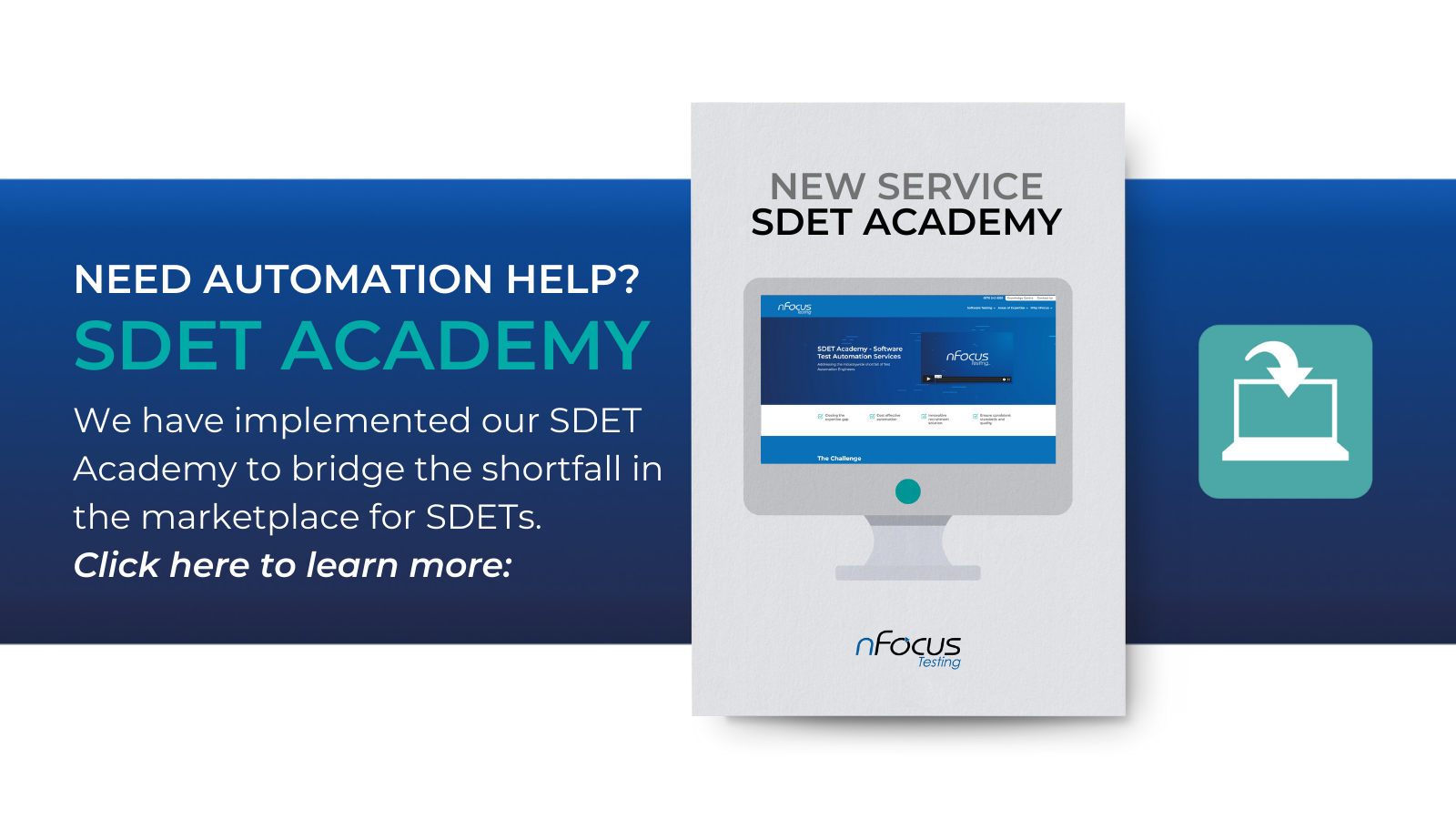How to Be an Advanced Test Analyst in One Day: Peter Deng
My name is Peter Deng, and I am a SDET consultant at nFocus, where I have been working for just over two and a half years. For the first two years of my work, I was a graduate student going into nFocus’ SDET academy, trained under an instructor in software testing, agile, and automation.
In that time, I undertook two tests with ISTQB, the board for certified testers, and achieved an average of 90% across both, passing with flying colours. After working for a client for two years, it was time for more training. Therefore, it made sense that the next step for me was to take the Advanced Test Analyst course. Read on as I explain my experiences and tips for future test takers, either for ATA or for any other ISTQB exam..jpg?width=600&height=338&name=iStock-683763602%20(1).jpg)
In my journey to becoming an Advanced Level Test Analyst, I discovered the importance of a comprehensive approach to exam preparation. This included test analysis, a thorough understanding of functional test strategies, and the use of various test tools. I also engaged with peers, such as software testers, automation engineers, and even a software developer, to gain insights.
My ISTQB-certified tester foundation experience helped lay the groundwork for the training course, and my work as a testing consultant further refined my skills. Ultimately, obtaining the advanced-level certificate and the test analyst certificate deepened my understanding of software testing and emphasised the importance of risk-based testing in achieving this testing qualification.
The Slightly Too-Hasty Booking of Your Exams
In May 2024, I had just completed an ISTQB Advanced Level Test Analyst course. After passing the exam and receiving my certification, I can fully say that it was not an easy certificate to get. I passed with 76%, which is a comfortable percentage, but this was achieved in the span of under 19 hours between the end of the training course and the exam. With 7 hours for sleep, there was a maximum of 12 hours to revise a 3-day course with six major topics all inside an enormous booklet—definitely a contender for one of the most stressful events in my life!
It's in this short span of time I picked up useful lessons that I can share with you if you are going to prepare for an exam, such as the ISTQB exam board or certified tester foundation level.
Now, before I continue, you may be asking how I ended up having so little time to prepare for this exam. I will admit, I made a very hasty decision to book my exam date before the course, fuelled by the experience of my first ISTQB course in 2021, which was two days of preparation after finishing the course, then passing with excellent grades.
In short, I didn't realise how big the Advanced Test Analyst course was. I also didn't know that less than a day of preparation wouldn't be enough for me. The following section will explain my thought process for why I chose an early a date in general.
How Your Brain Works
Two questions must be considered when strategising your time spent revising: how much time you need to revise the entire syllabus, and what sort of conditioning your brain is suited to.
To expand on the first point, after studying a topic, your brain is making new connections with new knowledge. You can imagine studying as establishing the first "strand,” which can easily snap, causing you to forget. Revision reinforces that string by adding more strings, thereby affirming your mind’s connection to that knowledge and preventing you from forgetting.
The second is about how your brain reacts to time conditions. There are those who, when pushed to a tighter deadline, become significantly better focused, also known as hyper-focus. This trait is only found in specific types of people and cannot be learned.
There is a technique used frequently in secondary school called cramming, which bears a similarity here. Many students don’t realise the effectiveness of this is an attribute of their brain. This means that the pressure of the exam date itself can become a great driving force (like for me!). However, this is not the case for everyone. The earlier booking date instead may cause anxiety and stress. This can weaken the foundations, causing an extra need for time to memorise and strengthen those connections.
What’s important here is to know yourself well. Ask yourself how you learn best. This might be an unfamiliar space, so try simply to reflect on your daily life and work and try to find common patterns about the way you work best. This leads on to the next tip...
Planning Your Study
Once you know what sort of learner you are, we need to establish a practice environment that meets those needs. The biggest secret untold here is that studying is really the same as working, and just like working, we can study efficiently. Let’s look at how...
How long are your study sessions?
When you work, do you work best by focusing for 4-5 hours with no distractions, or do you require frequent intervals? For me, the most frequent interval I’ve used is 30 minutes to 1 hour, both for study and work. Sometimes this extends to 2 hours. Be conscious of your health and mental state because the next question is...
How long are your breaks?
Everyone needs some sort of break. The reason is that the brain needs time to cool down, replenish water and sugar, reinforce what you just studied, and reduce the risk of burnout. Regardless of wellbeing, this is the key to the greatest results that you may not have realised. Breaks help you get more out of your studies.
How do you want to split your learning?
This has to do with the order in which you prioritise your subjects and how you choose what to study next. A tip from a friend is to pick the most important topic to study last, then repeat that the next day again. The reason is that the last topic is the most memorised while sleeping; sleep in turn acts as a sort of “super break” here. Hence, you can split a topic across days and study each topic in a single day, thereby making sure you cover the full breadth in one day.
Alternatively, you can simply do the linear route and go topic by topic across the books, with no priority on any topics, though I would suggest doing this if you have more time to spare. With less time, it becomes difficult to have full coverage; therefore, prioritisation becomes paramount. You can parallel this to prioritising the highest-risk tests in risk-based testing.
The Theory vs. the Practice
My next tip is about studying the theory. As a software tester with just over 2 years of experience, I have, like many others, picked up certain aspects of testing while working. With the expertise you have, your knowledge of certain areas may be skewed or imprecise. It’s not your fault for learning this way; it’s just that the exams are more pedantic than is needed in practice. The best thing to do is to start from square one, re-learning the same things you do normally day-to-day, and then build on that knowledge with your own experience.
Despite my gripes with this, I recommend familiarising yourself with the style of exam questions that can appear. For me, learning the language of the exam is the fastest way to kill all interest in a topic, but it's also the most secure way to go into an exam confidently. You could, for the sake of the examination, focus your time studying the exam questions and then use other time to explore the topic. This can be done practically through notetaking, as having it written down helps to return to the original topic after the exam.
Finding the Small Detail (In Questions)
This is a tip that could help you during the exams. The difficulty of a question can be in little details. There are questions purposefully written in misleading ways to challenge your attention to detail. Don’t worry, this isn’t you making silly mistakes; this is an exercise in precision to challenge your eye for detail.
One way you can do this is by highlighting key points of information you find, i.e., by highlighting or crossing out information. In the exam, you can still do this using the paper given for notetaking.
Another tip for finding the small details is rewording the question. Once you’ve read a question, revisualise that in your mind and ask yourself if this were how you would ask the same question. Re-wording it can simplify the question’s meaning for you and help you see what it’s really asking.
Lessons in Retrospect (Don't book for 1 day after!)
I hope I provided a sturdy guide for you in planning your revision for whichever exam comes your way. The key to my success definitely came from planning my study, establishing how long I wanted each study slot to be, and knowing when to take a break each time. Then came prioritising the most important information to learn (in ATA, it was definitely the testing types like decision-based testing).
Next time, I will give myself more time so my stress levels aren’t through the roof and more time can be spent exploring the subjects at hand.
So, the best advice I can give, aside from not booking your exam date for the very next day, is to give yourself time to prepare, understand what sort of way you work and revise best, and make sure you are at your very best for the exam. Remember, it’s just a score; a pass is a pass, and the skills you learned in the course will always outweigh the words on the certificate.
Finally, share your experiences with your peers; there’s a great deal of value in your experiences that can help them be more confident, and they will definitely be grateful for it. If you’re taking an exam right now, I wish you good luck and all the best. Happy testing!








.png)
